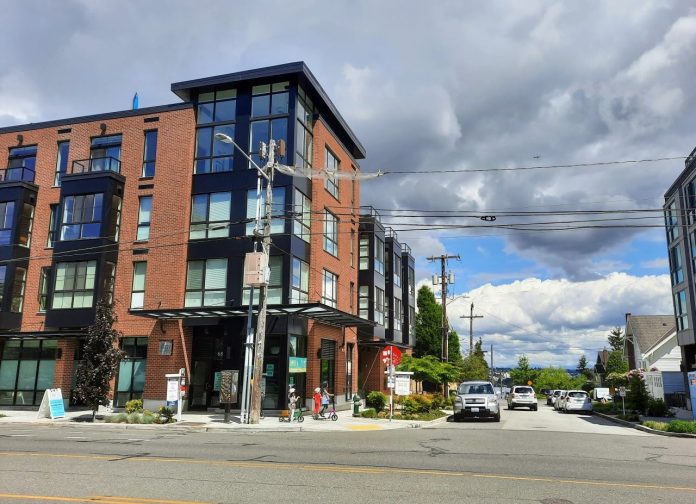Councilmember Teresa Mosqueda is taking heat from both sides after introducing legislation recognizing Seattle’s diverse neighborhoods in a bid to lay the groundwork to change the zoning in our next update to the comprehensive plan. Some are upset because they see the name change as simply rebranding a broken and racist zoning code — they feel it changes nothing. Others are upset because they think it changes everything. The truth lies somewhere in the middle, and that means everything.
As a renter in a neighborhood that is predominantly zoned as “single family,” it can seem like being treated as a guest in a community I’ve committed to advocating for, a neighborhood my family would not have been able to live in before racial covenants and redlining were abolished.
When Seattle first established zoning ordinances in 1923 through the Comprehensive Plan, people had previously been able to reside in multifamily housing anywhere housing was permitted. After the introduction of the Comprehensive Plan, influenced by racist planner Harland Bartholomew, Seattle began to be downzoned with the introduction of single-family zoning and with that name and zoning change, dense and diverse housing options were relics of the past in areas focused on building neighborhoods of wealthier, White homeowners. The 1947 Comprehensive Plan downzoned swaths of multifamily housing to duplexes.
Even when there are Urban Village zones, we are relegating renters and apartment dwellers like myself into small nodes of newer builds if we want access to housing with air conditioning and aren’t around a century old. We deserve safe, diverse housing everywhere, again. Seattle requires density across the city, not just a quarter of it.
By introducing legislation to rename areas that are deemed “Single Family” as “Neighborhood Residential,” we stop erasing our neighbors who are renters, we stop erasing the big and beautiful non-detached housing that was once the norm, and we normalize the missing middle housing models for lovely, walkable neighborhoods. We also start to turn our back on the tools that were used for racist, exclusionary zoning that continue to impact today’s housing market. People like me used to be redlined out of Queen Anne, and now I will never be able to afford to buy a detached house in the neighborhood on an educator’s paycheck (or in the city in general). The language of zoning matters because it reiterates that the whole neighborhood is for me to reside, not just a node, or a hub, or a village.

The name change, however, would not immediately change the zoning itself. It comes on the heels of repeated requests from the Planning Commission, and recently, the update to the Growth Management Act championed by Futurewise in House Bill 1220. This law “[e]stablishes antidisplacement policies, with consideration given to the preservation of historical and cultural communities as well as…equitable development initiatives; inclusionary zoning; community planning requirements; tenant protections…” Thus, giving not just permission but direction for city comprehensive plans to work on inclusive zoning measures. The name change lays the brick by brick groundwork for actual zoning changes in the major comprehensive plan update, which starts discussion at the end of this year but won’t be completed until 2024.
Big changes are underway to right historical wrongs, and we can’t rebuild Seattle in a day or with one piece of legislation, but this one piece of legislation is absolutely a critical launching pad for starting the substantive changes we want to see. We need to rally behind “Neighborhood Residential” so that we can rally against the apartment ban. We need the city council to pass this legislation and all the inclusive changes that eventually follow.

Jazmine Smith
Jazmine Smith (she/her) is co-chair of The Urbanist Elections Committee and a political hack/policy wonk who won’t shut up about niche local and statewide politics, bikes, bus lanes and building more housing. She has been serving on the Queen Anne Community Council as a board member and formerly Transportation Co-Chair, and serves on the Uptown Land Use Review Committee. She’s an ardent renter in Lower Queen Anne and e-bikes around town when she doesn’t just take the bus/train. Jazmine loves being an organizer and will relationally organize YOU into caring about things.

